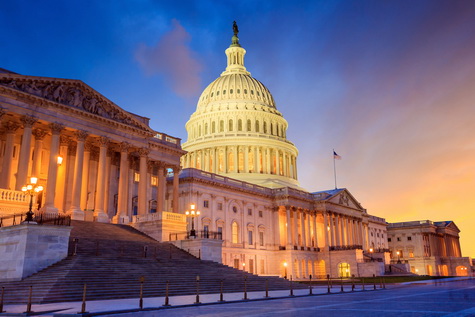
Senate Democrats this week advanced an amended, $1.9 trillion pandemic relief package that is expected to pass on a party-line vote – then sent back to the House for final passage before current unemployment benefits expire March 14. (Politico, March 4 and Congress.gov, actions on H.R. 1319)
The Roundtable is part of Build by the 4th coalition led by U.S. Chamber of Commerce, which encourages the Biden Administration and the new Congress to pass a comprehensive infrastructure deal by Independence Day 2021.
# # #
Commercial real estate industry leaders continue to acknowledge the effects of the COVID-19 pandemic on various asset classes, while expressing increased optimism about market conditions for the remainder of 2021, according to The Real Estate Roundtable’s Q1 2021 Economic Sentiment Index. The March 3 Index also reports on growth potential for the industrial and multifamily sectors, while hospitality and retail continue to face challenges due to government restrictions and health guidelines.
Data for the Q1 survey was gathered by Chicago-based FPL Associates on The Roundtable’s behalf. For the full Q1 report, visit here and full news release.
# # #

House Democrats on March 2 introduced a sprawling bill aimed at achieving net-zero greenhouse gas emissions by 2050 with provisions regarding building construction, operations, and ESG reporting. (Politico, March 3 and CQ News, Reuters, March 2)
While the measure will likely face substantial challenges to attract 60 votes in the evenly divided Senate, The Roundtable’s Sustainability Policy Advisory Committee (SPAC) is conducting a detailed analysis of the CLEAN Future Act’s impacts on the real estate sector.
# # #

Two recently introduced legislative proposals supported by The Real Estate Roundtable would address issues important to commercial real estate. The Healthy Workplaces Tax Credit Act would provide a new tax credit for business owners’ expenses associated with reducing the risk of COVID-19 in the workplace. The Main Street Tax Certainty Act would permanently extend the 20% pass-through business income deduction enacted in 2017. Separately, a coalition of real estate organizations, including The Roundtable, urged Treasury this week to provide guidance allowing property owners to fully benefit from legislation enacted in December that clarified the cost recovery period for rental housing.
Healthy Workplaces Tax Credit
20% Deduction for Pass-Through Business Income (Section 199A)
Real Estate Industry Requests Rental Housing Cost Recovery Guidance
The Roundtable and its Tax Policy Advisory Committee (TPAC) will continue to work with policymakers in Congress and regulatory agencies on the fair and equitable tax treatment of real estate.
# # #

A national eviction moratorium issued by the U.S. Centers for Disease Control and Prevention (CDC) is unconstitutional, according to a Feb. 25 ruling by a federal judge in Texas. The ruling does not address similar state-level bans, but raises key questions on the extent of the federal government’s power to prevent residential tenant evictions during the pandemic. (National Multifamily Housing Council and GlobeSt, Feb. 26)
The Roundtable & Rental Assistance

Alston and Bird notes in an analysis of the Texas decision that “Absent a broad injunction, the decision has very limited effect. Nonetheless, the ultimate outcome of Terkel v. CDC could have important implications for other courts considering the scope of government action in response to the COVID-19 pandemic – particularly if it is upheld on appeal or ultimately heard by the U.S. Supreme Court.” (Alston & Bird, March 1)
# # #